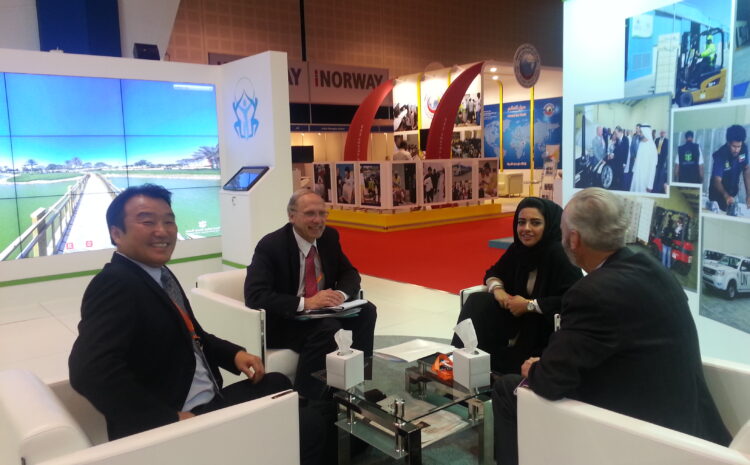
Held under the patronage of H.H. Sheikh Mohammed bin Rashid Al Maktoum, Vice President and Prime Minister of the UAE and Ruler of Dubai, and supported by Mohammed bin Rashid Al Maktoum Charity and Humanitarian Establishment, the United Nations, International Humanitarian City (IHC), Emirates Red Crescent, Dubai Cares and the Organization of Islamic Conference, Dubai International Humanitarian Aid & Development Conference & Exhibition – DIHAD 2014 – concluded its 11th edition today.
Held at the Dubai World Trade Centre, the largest humanitarian event in the Middle East brought together internationally renowned humanitarian and development figures and key humanitarian leaders as speakers, and non-profit organizations, UN agencies, government departments, humanitarian specialists, researchers and academics, in addition to companies specialized in humanitarian supplies as participants. Exhibitors comprised over 300 organizations from 66 countries around the world, including IHC member organizations, medical supply specialists, ambulance and mission vehicle manufacturers and companies that specialize in supplying appropriate goods and services for disaster response operations, humanitarian aid projects and development programmes.
IHC exhibited its newly launched technologies which include a 360 interactive virtual tour of the facilities, and a multimedia presentation of IHC member organizations’ emergency relief operations. IHC was honored to receive high official delegates, board members and leaders of the humanitarian community.
This year, DIHAD came under the theme of “Women and Aid; women, on whom disasters and crises inflict a disproportionate amount of suffering and women, essential providers of relief and assistance,” bringing much attention to the role of women as both aid providers, and as beneficiaries and victims of humanitarian crises.
“We cannot stress enough on the significance of this year’s theme – Women and Aid, and the importance of recognizing the disproportionate amount of suffering but also the importance of women’s role in development,” said IHC CEO Shaima Al Zarooni on the importance of this theme. “We are accustomed to hearing about women as victims of neglect and abuse, but what this DIHAD highlighted so often was how women can take the lead in solving major social and economic problems– especially in areas like agriculture, nutrition and small-scale businesses. Women need to be empowered to be part of the solution to the economic challenges that affect them and their families,” she continued.